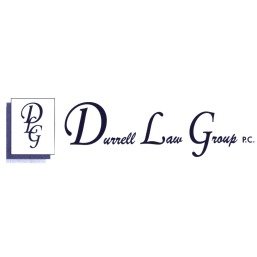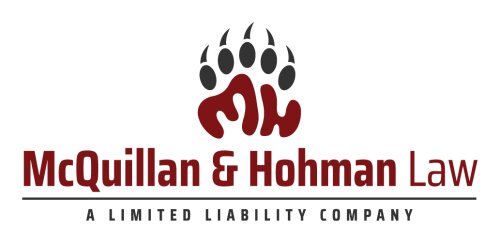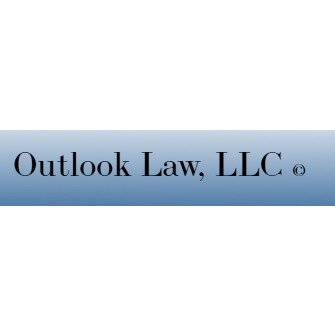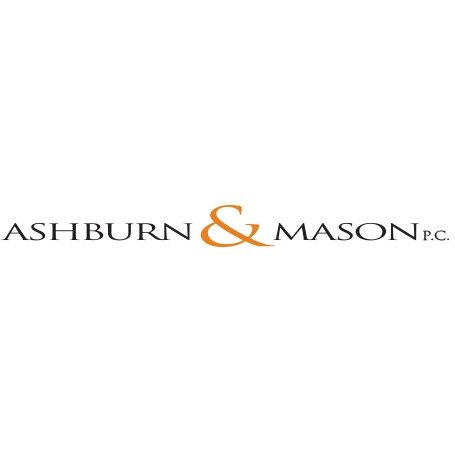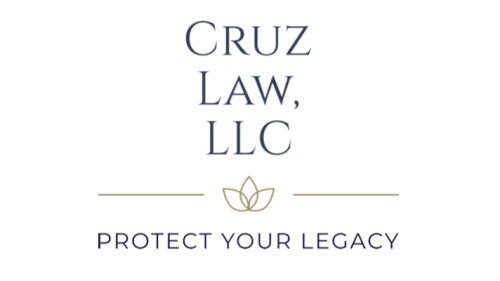Best FDA Law Lawyers in Anchorage
Share your needs with us, get contacted by law firms.
Free. Takes 2 min.
List of the best lawyers in Anchorage, United States
About FDA Law in Anchorage, United States
FDA Law, referring to the body of federal, state, and local regulations overseen by the United States Food and Drug Administration (FDA), plays an essential role in Anchorage, Alaska. FDA Law covers the development, production, distribution, and regulation of food, drugs, medical devices, cosmetics, and other products under FDA’s jurisdiction. In Anchorage, these laws ensure that products reaching consumers are safe, effective, and properly labeled. Businesses that manufacture or sell FDA-regulated products or healthcare professionals interacting with FDA processes must comply with complex requirements, making legal guidance especially valuable.
Why You May Need a Lawyer
FDA law is intricate and often overlaps with state and local public health regulations. Individuals or organizations in Anchorage may seek legal help for various reasons, including:
- Starting a business that manufactures or sells FDA-regulated products like foods, supplements, or pharmaceuticals
- Navigating the FDA product approval process
- Responding to an FDA inspection or warning letter
- Defending against accusations of non-compliance or adulteration
- Understanding or appealing product recalls
- Ensuring marketing materials and labeling follow FDA rules
- Dealing with import or export of FDA-regulated goods
- Handling enforcement actions, seizures, or injunctions
- Seeking advice about patent or trademark concerns related to FDA-regulated products
- Addressing local compliance issues with the Alaska Department of Environmental Conservation or Anchorage Health Department
Legal professionals specializing in FDA law can help clients avoid costly mistakes and protect their businesses from regulatory action.
Local Laws Overview
While FDA regulations are federal, Alaska and the city of Anchorage enforce their own rules that affect FDA-regulated businesses and professionals. Key aspects include:
- The Alaska Department of Environmental Conservation (ADEC) oversees food safety and sanitation rules that supplement FDA requirements, particularly for food establishments, seafood processors, and retail food businesses.
- The Municipality of Anchorage has local health codes and licensing requirements for food service, retail establishments, and health-related vendors. Local inspectors may conduct their own reviews in addition to federal oversight.
- Some products, such as cannabis and CBD derivatives, are regulated by state or local agencies as well as by the FDA, requiring dual compliance.
- Alaska’s remote geography poses unique challenges for shipping, storage, and distribution, making compliance with federal and state standards for the transport of perishable or sensitive goods especially important.
- Anchorage businesses must pay attention to both labeling requirements at the federal level and local requirements for signage and consumer advisories.
It is important to remember that even though Anchorage follows federal FDA law, local and state regulations can introduce additional obligations.
Frequently Asked Questions
What types of products are regulated by the FDA in Anchorage?
The FDA regulates a wide range of products, including food, dietary supplements, drugs, medical devices, cosmetics, veterinary products, and some electronic products. Businesses in Anchorage that handle these items must comply with both federal and relevant state or local regulations.
How do I get FDA approval for a product?
The approval process varies by product type. Drugs and certain medical devices generally require documented testing and formal approval. Foods and dietary supplements may only require compliance and registration, not pre-market approval. A lawyer can help guide you through the specific steps for your product.
What should I do if the FDA issues a warning letter to my business?
Take any FDA warning letter seriously. You should consult an attorney experienced in FDA law to review the issues and promptly develop a response plan that addresses the FDA’s concerns and documents any corrective actions.
Does Alaska have its own food safety laws in addition to FDA rules?
Yes. The Alaska Department of Environmental Conservation and the Municipality of Anchorage have additional food safety, preparation, and handling laws. These complement FDA requirements and must be followed by all relevant businesses.
What is the difference between FDA regulation and local health codes?
FDA oversees manufacturing, packaging, and labeling on a national scale, while local health codes focus on safe food handling and public health within Anchorage. Both set rules that often overlap, and facilities must comply with all applicable standards.
Can I sell CBD or cannabis products in Anchorage?
CBD and cannabis products are regulated differently at the federal, state, and local levels. In Anchorage, cannabis is legal under certain state regulations, but FDA still oversees claims made about CBD products. Legal advice is crucial to navigate this complex area.
What are common FDA violations businesses in Anchorage face?
Common violations include improper labeling, unsanitary processing conditions, unapproved health claims, and failure to register a facility or report adverse events. Legal counsel can help with compliance and prepare for potential inspections.
How can I prepare for an FDA inspection?
You should maintain thorough and up-to-date records, ensure facility cleanliness, train staff on compliance procedures, and consult with an FDA lawyer to review your readiness and conduct mock inspections if needed.
Are imported foods and medical devices regulated differently?
Yes. All imported FDA-regulated products must meet the same standards as domestic goods, but additional customs and import approval steps apply. Anchorage’s port and airport make this especially relevant for local businesses.
What should I do if my product is subject to a recall?
Act promptly to comply with recall instructions and notify affected customers. Legal guidance can help manage communication with regulators, the public, and business partners, as well as limit liability.
Additional Resources
If you need more information or assistance, the following resources can be useful:
- United States Food and Drug Administration (FDA) - the main federal agency responsible for regulating food, drugs, and related products
- Alaska Department of Environmental Conservation (ADEC) - oversees local regulation for food and certain consumer products, including licensing and inspections
- Municipality of Anchorage Health Department - enforces local health codes, licensing, and inspection of food and health businesses
- Alaska Bar Association - can help you find qualified attorneys experienced in FDA law and local regulations
- Small Business Administration Alaska District Office - provides resources for new and small businesses, including regulatory compliance education
Next Steps
If you need legal assistance with FDA law in Anchorage:
- Identify your specific legal concern, such as product approvals, compliance audits, or responding to enforcement actions.
- Gather all related documentation, correspondence, licenses, and records.
- Contact a lawyer who specializes in FDA law and has experience with Alaska’s local and state regulations. The Alaska Bar Association can provide referrals.
- Schedule a consultation to discuss your needs, assess risks, and develop a strategy for compliance.
- Follow the lawyer’s advice on corrective actions, communication with regulators, and ongoing compliance efforts to protect your business or personal interests.
With the right legal support, navigating FDA regulations in Anchorage can be manageable and help you avoid costly issues in the future.
Lawzana helps you find the best lawyers and law firms in Anchorage through a curated and pre-screened list of qualified legal professionals. Our platform offers rankings and detailed profiles of attorneys and law firms, allowing you to compare based on practice areas, including FDA Law, experience, and client feedback.
Each profile includes a description of the firm's areas of practice, client reviews, team members and partners, year of establishment, spoken languages, office locations, contact information, social media presence, and any published articles or resources. Most firms on our platform speak English and are experienced in both local and international legal matters.
Get a quote from top-rated law firms in Anchorage, United States — quickly, securely, and without unnecessary hassle.
Disclaimer:
The information provided on this page is for general informational purposes only and does not constitute legal advice. While we strive to ensure the accuracy and relevance of the content, legal information may change over time, and interpretations of the law can vary. You should always consult with a qualified legal professional for advice specific to your situation.
We disclaim all liability for actions taken or not taken based on the content of this page. If you believe any information is incorrect or outdated, please contact us, and we will review and update it where appropriate.



